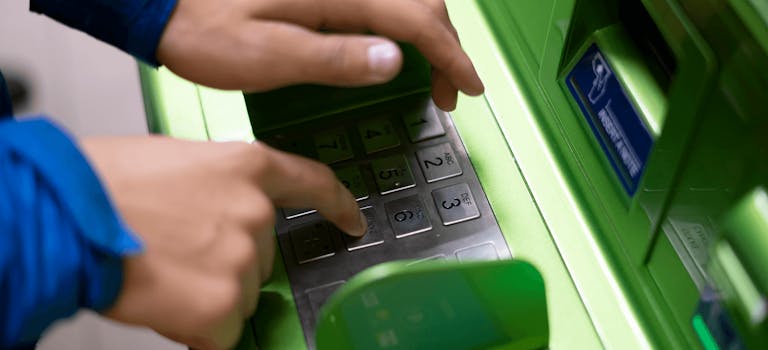
Why sharing your PIN could put you at risk - and what to do instead
20th Oct 2025

Stela
Looking after your money is important, and sometimes you might need a little extra help. Some people ask a friend or family member for support with money management. But even if they agree to help, you should never give them your PIN.
In this article, we explain why sharing your PIN can be dangerous, and show you safer ways to get help when you need it.
How many people are sharing their PIN?
A recent report based on the Financial Conduct Authority’s Financial Lives survey, found that:
- 1 in 5 people with mental health problems have shared their PIN or banking details with someone else
- 42% said they wanted help managing their money from a trusted person
This shows just how common it is, and how much people need support. But even if the person helping means well, sharing your PIN can lead to money being taken without permission, or even stolen. And if that happens, your bank might not be able to refund you.
What could go wrong if you share your PIN?
Your PIN is like a key to your money. If someone else has it, they can use your card to take out cash, buy things, or access your account. And if something goes wrong, your bank might not be able to protect you.
Here are some of the risks:
- fraud – someone could use your PIN to take money from your account without your permission
- financial abuse – even people you trust can sometimes misuse your details, especially if they’re under pressure or struggling themselves
- identity theft – if your PIN is shared along with other personal information, someone could pretend to be you and open accounts or take out loans in your name
- no refund – if you gave someone your PIN willingly, your bank might say you’re responsible for what happens even if that person misuses it
It’s important to remember banks and official services will never ask for your PIN. If someone does, it’s a red flag.
Carer’s Card accounts – a safer alternative to sharing your PIN
If you’re finding it hard to manage your money, you can still get support. But you shouldn’t have to share your PIN to get it.
One safer option is something called a carers’ card account. Some banks offer this. It gives your nominated carer restricted access to your account, but you remain in control. It can help them buy essentials for you, like food or medicine, without needing access to your bank account or PIN.
The charity behind the report is encouraging banks and shops to make tools like this more widely available. That way, people who need help can get it without putting their money at risk.
How to keep your PIN safe
Even if someone is helping you with your money, your PIN should always stay private. It’s one of the most important ways to protect your account and your money.
Here are some simple ways to keep it safe:
- don’t write your PIN down; try to remember it instead
- if you do need to write it down, keep it somewhere safe, not in your wallet or purse
- avoid easy-to-guess numbers, like your birthday or ‘1234’
- use different PINs for different cards or devices
- cover the keypad when entering your PIN at a cash machine or in a shop
- never share your PIN with anyone; banks will never ask for it
If you think someone has seen or used your PIN, contact your bank straight away to block your card and change your PIN.
Getting help with money is important and you deserve support that feels safe and respectful. By keeping your PIN private and using safer tools, you can protect yourself while still getting the help you need.
< Back to articles
